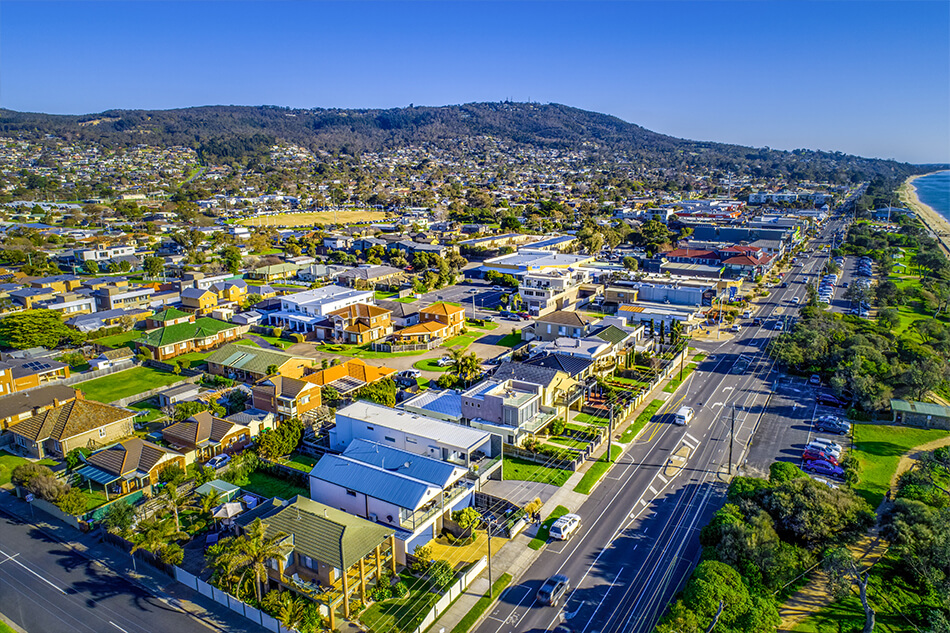- Key Takeaways:
- Why have you invested in property?
- Why should I sell my investment property?
- Why should I hold on to my investment property?
- Will I pay Capital Gains Tax on an investment property?
- Should I sell my investment property before retiring?
- How can I sell my investment property?
- How much does it cost to sell my investment property?
- What are the pros and cons of selling an investment property?
- Contact Lendstreet for expert advice!
- FAQs
Key Takeaways:
- A recent house price surge could make this the best time to sell.
- Take advantage of the pricing boom and make a great profit when selling!
- Seek better investment opportunities to invest in.
- Remove poor investments from your portfolio.
- Capital gains tax discount of 50% on for property ownership over 12 months.
Home prices have increased by 24% across Australia in the last year! Selling your investment property with real estate agents now could be a clever manoeuvre, taking advantage of the crazy housing market!
Now may be the best time to sell your investment property on the local market. Although, this depends on your circumstances and the property in question.
So, when should YOU sell your investment property?
Why have you invested in property?
Have you invested in property to make a serious profit? Or, have you fallen into property investment due to unforeseen circumstances?
People invest in property for many diverse reasons. You may possess an extensive portfolio of properties and work as an investor as a full-time job. You could be a professional landlord with no intention of selling your investment properties.
Perhaps you are a fix and flip investor, renovating rundown properties and selling immediately for a profit? Or, maybe you own one or two investment properties through inheritance or need to relocate?
Your overall goals will dictate when you should sell your investment property.
Why should I sell my investment property?
Sell your investment property to make a generous profit! Investment real estate is a tangible asset whose value could increase by tens of thousands of dollars or more!
However, there are many complex reasons you may want to sell your investment property.
Investment Opportunities
You may want to sell your investment property to access the money held in the asset. Perhaps you have spotted a guaranteed investment opportunity on the horizon that you need to grab hold of?
You will need to draw together all available funds to finance this new venture. Consider the costs involved in selling an investment property such as capital gains tax. Capital gains tax may be payable if you have made a profit.
A property investor will also need to pay estate agent fees and legal costs when selling your investment real estate.
You must additionally consider the costs of purchasing your new investment venture. You will have to pay stamp duty and legal and conveyancing fees for a new investment property.
Negative Gearing
If your investment real estate is not making you any money or losing money from the rental income, it is a negatively geared property.
You may be comfortable with the situation in the short term if you believe the situation may change shortly. If the housing market booms, you may be able to charge a higher rent eventually for rental properties.
However, you may decide that it is time to sell the investment property and cut your losses. Selling your investment real estate will release you from a negatively geared investment, enabling you to channel your money elsewhere.
Negative gearing does hold some advantages for investors, with tax deductions featuring as a high benefit for investors. Professional investors see this as a positive feature to capitalise on in the short term.
Stagnant Housing Market
Following the trends of the local housing market is vital for sophisticated property investors. You must know the forecasted market changes and the predicted price increases and decreases.
If your real estate investment has no potential growth for the foreseeable future, selling could be a wise move.
Recent Price Rise
If there has been a recent lift in housing market prices, you could take advantage of the increase and cash in! Selling your property now may ensure you make a tidy profit to improve your bank balance.
Forecasted Market Fall
Oppositely, if a housing price crash is predicted, selling your real estate investment may provide you with an early escape route! A housing price crash may decrease the property’s value so you cannot sell for many years.
Investor Strategy
A prolific investor wants to keep expenses low to maximise their potential profits. You may purchase investment properties with interest-only home loans to minimise ongoing costs.
Once the market has picked up, you aim to make a profit from the price rise by selling the property. A successful investor will strategise their buying and selling of properties in this way for the highest profit.
Why should I hold on to my investment property?
If you are making money from your investment property, hold on to it for a while! Some investment properties can provide long-term benefits and make you a small fortune.
Recent Purchase
Was the purchase of your investment property a lengthy, expensive process? You may want to defer the thought of selling the property for a while to recover the costs incurred. There will be further costs to sell the property, particularly capital gains tax if a profit is made.
It is also possible to reduce the amount of capital gains tax payable. Capital gains tax is reduced to 50% of profits made if you have owned the property for over 12 months.
Positive Gearing
If you are making money from the rental income after expenses, why would you sell?
Positively geared investment properties are not that common, so you should value such an investment kindly. Investment properties in a great location and close to schools will always have tenants queuing up to sign!
Will I pay Capital Gains Tax on an investment property?
Capital gains tax is payable when you sell your investment property if you have made a profit. Although, if you have made a loss once you sell an investment property, you will not have to pay capital gains tax. You can offset the loss against a capital gain in the future.
You may be eligible for capital gains tax discounts to reduce the amount of money you pay. If you have owned the property for over 12 months, a 50% discount may be granted. This means you will only pay tax on 50% of the profits you make when you sell the property.
For this reason, many investors in Australia will wait a minimum of 12 months before selling their investment property.
Should I sell my investment property before retiring?
Selling your investment can release the money tied up in the asset, providing a very comfortable retirement! You may also be grateful to remove the hassle of selling the investment property in the future, once you have settled into retirement.
However, you may decide that a regular monthly amount from a rental property is a better option than a lump sum. Holding onto the investment property could provide you with regular security and a sum of money to rely on.
How can I sell my investment property?
To sell your investment property, first, contact a professional valuer and secure an official property value. You can request a free appraisal from an estate agent before the valuation, providing you with an estimated property value.
Once a formal valuation has been attained, your local real estate agent will list the property for you. You will then have to wait for the perfect buyer to buy your investment property!
How much does it cost to sell my investment property?
There are several costs to consider when selling your investment property, the main cost being capital gains tax.
Consider the following costs and fees when considering selling your investment property: .
| Investment Property Selling Costs |
|---|
| Capital Gains Tax |
| Real Estate Agent Fees |
| Legal Fees |
| Advertising Fees |
What are the pros and cons of selling an investment property?
Selling an investment property can take some time and effort, with a great return at the end to look forward to!
Here are the pros and cons of selling your investment property: .
Pros
- Release equity from the property.
- Take advantage of a booming property market and capital growth!
- Beat a predicted property price crash!
- Secure 50% capital gains tax discount for property ownership over 12 months.
- Eliminate negative gearing.
- Remove an underperforming property from your portfolio.
- Invest in better investment opportunities.
Cons
- A recently bought property will not receive capital gains tax discount.
- Positively geared investments should be kept hold of.
- You may face losing money in the long term if the house price increases.
- Real estate investment requires property management.
When should you let an investment property go?
The wisest time to sell investment property is after the pricing boom! The Australian property market has surged in prices, so capitalise and make a substantial profit. Improve your cash flow and take advantage of capital growth!
However, ensure you have owned the property for over 12 months to acquire a 50% discount on capital gains tax.
Contact Lendstreet for expert advice!
Lendstreet has a team of specialist brokers able to offer you tailored advice regarding your investment property.
Perhaps you want to sell your investment property and secure an investment loan for a new property? Or, do you want to keep your investment property but discuss refinance options with a Lendstreet professional? Receive a free property report today and see how much you could save when switching!
Whatever your circumstances, contact Lendstreet today for no-obligation professional advice! Remember, we secure our fee from the lender, not the borrower. Our expert service is completely free for you to use!
Get the latest news and updates from Lendstreet
Join and subscribe to our newsletter.
FAQs
When to sell investment property?
Selling an investment property depends on your personal circumstances and regional markets. Has your area experienced a property boom, price growth, or a declining market?
Outside factors may be responsible for the price of the property stagnating for a long time. People sell a passive income when the time is right and when financial freedom is possible.
Do I have ongoing costs to pay on a rental property?
Property investors will have ongoing costs to consider on rental properties. Costs include, but are not exclusive to, council and water rates, landlord and building insurance, and land tax.
You will also have to pay property management fees if you hire a property manager. A property manager will ensure your tenants are reliable and pay the rent on time. You will still have to pay for any maintenance costs to the property, which may harm your cash flow.
Can I receive capital gains tax exemption?
No, there are no exemptions for capital gains tax. Any profit you make on an investment property is taxable income.
If you have owned the property for over 12 months, the assessable income will be reduced to 50%. This means if you have made a $100,000 profit from the sale process of a property, only $50,000 will be taxed.
Sophisticated investors seek professional advice and secure an interest-only mortgage with low-interest rates for investment properties. Future growth will be determined by the regional or city market and will represent actual capital growth. This reduces the profit made on the property and therefore reduces the capital gains tax.
Is it worth keeping investment property?
If you are making a profit after expenses every month from your rental property, then this is a better investment than some! If your vacancy rates are low and you have reliable tenants, then it may be worth keeping your investment property.
After a few years, most investors will witness an increase in growth of capital value and may decide to sell.
However, if you want to keep your investment property yet need extra money, seek professional advice from Lendstreet! Lendstreet’s expert brokers can present a range of refinancing options for you to consider.
Schedule a call to one of our expert mortgage broker
Ask our expert mortgage brokers anything about home loans.
Related articles
In 2023, rental prices are through the roof. For investors, it’s a good better time to purchase a property ...
If you're looking to invest in Melbourne but don't know where to start, here are the best suburbs to look ...
Key Takeaways: Now is a great time to invest in property! Know your budget and the reasons why you want ...









